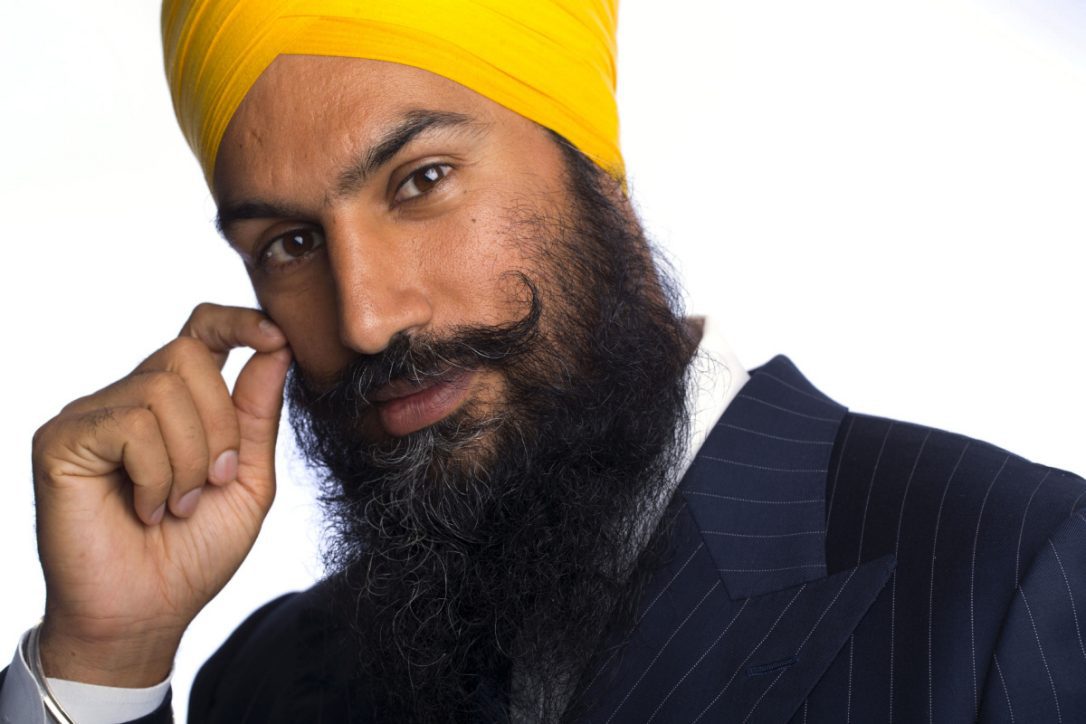I'm not sure if Karl Marx ever predicted this, but Canada's only official socialist party i.e. the NDP, has lately become less about class struggles and more about fundraising struggles.
In fact, according to media reports, the NDP's fundraising numbers are horrible.
And this likely reflects the NDP's other ongoing problems: it's languishing in the polls, its leader, Jagmeet Singh, hasn't caught on yet with the Canadian public, and the party is fighting with itself over the question of oil sands development.
Plus, in a recent Quebec by-election the NDP got massacred
Indeed, so bad was that loss (the party finished way back in third place) it led former NDP leader Thomas Mulcair to openly express deep concerns about his party.
Said Mulcair: "I am worried about a score like that, what it means for the future, no doubt."
So with all this going on, the "D" in NDP, now probably stands for "despair."
Hard to believe this is the same party that not too long ago, was riding high on an "orange wave" of optimism.
And what makes the NDP's current woes so odd, is that socialism is suddenly becoming trendy.
Hard-core left-winger Jeremy Corbyn's Labour Party performed much better than expected in the last British election; Bernie Sanders led a surprisingly effective socialist uprising within the Democratic Party, and 28 year-old "democratic socialist", Alexandria Ocasio-Cortez, stunned the Washington establishment when, in a recent primary, she bested a long-time Congressional incumbent.
As a matter of fact, Ocasio-Cortez's success is now being touted in the media, as a sign that a new generation of millennial socialists is on the march.
So if socialism is rising, why is the federal NDP falling flat?
Well, the problem, I think, was summed up quite well by former Prime Minister Brian Mulroney who once said, "In politics … you need two things: friends, but above all an enemy."
Mulroney's point was that if a party has an enemy to rail against, it helps to mobilize its base and thus helps to generate donations and thus helps to get votes.
But more than that, having a foe gives a party an easy-to-understand mission: "Vote for us so we can stop this bad guy!"
For Justin Trudeau, Stephen Harper was that bad guy; for Donald Trump, it was Hillary Clinton; for Ocasio-Cortez, it was Trump.
But who is the bad guy for the New Democrats?
Answer: They don't really have one.
OK, technically-speaking, they do have an enemy in Prime Minister Justin Trudeau.
But it's difficult for the NDP to demonize him because he has basically appropriated a socialist-style, millennial-friendly, progressive agenda.
Plus, let's face it, Trudeau is a likable guy.
Yet, for the sake of its survival the NDP has to find a way to make Trudeau into their bad guy.
And even though that won't be easy, it's not impossible.
For instance, Trudeau's background and record both make him vulnerable to an "Us vs Them" attack; so the NDP might consider sending out a fundraising letter along these lines:
Dear NDP supporter:
If you're anything like me, you've had it with Prime Minister Justin Trudeau's corporate-driven agenda.
As we all know, this privileged, rich kid, who has never had to work a day in his life, is taking money out of the pockets of working Canadians like you and me, so he can bail out his wealthy Bay Street backers.
And did I mention, he recently gave billions of dollars to a bunch of Texas oil millionaires!?
No wonder his rich friends invite him to spend his holidays on private island resorts, while people like us are struggling to make ends meet.
Only the NDP, Canada's true socialists, can stop Trudeau's capitalistic cronyism!
Send money!
OK, that's a little bit facetious but you get my point.
Of course, such a strategy will likely generate bad headlines for the NDP, because, generally-speaking, the Canadian media doesn't like negativity and more specifically they don't like negativity when it's directed against Trudeau.
Yet that won't matter, because, after all, the NDP's goal isn't to win over the media, it's to win over voters.
And that won't happen until the party finds a way to degrade the prime minister's brand.
Simply put, before voters accept Jagmeet Singh, they must first reject Justin Trudeau.








